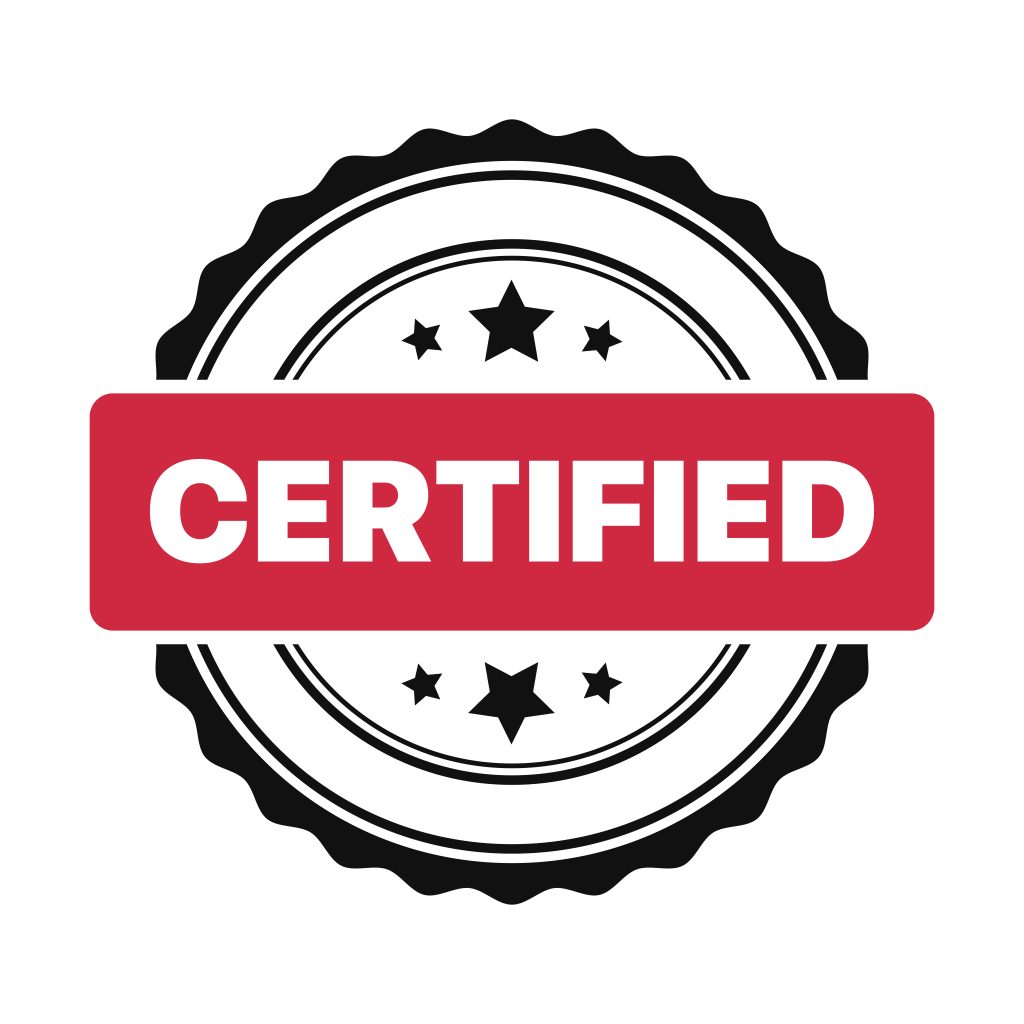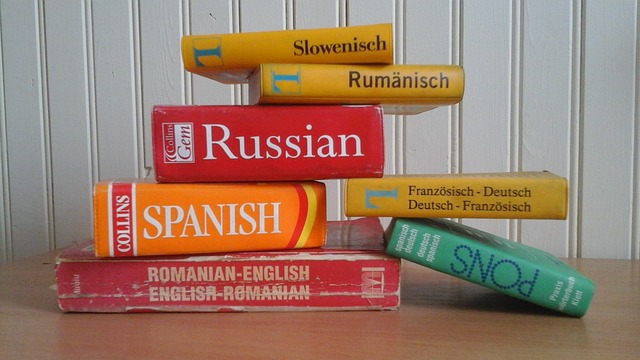Rapid Translate Team
Certified translations are those translations that meet the requirements of a particular country. These translations are necessary for official and academic purposes when language disparities exist. But recently, there have been many questions about what a certified document translation is and why it is important.
It is necessary to maintain accuracy when translating official and educational documents. Any deviations from the original meanings of such documents are usually problematic. Furthermore, document certifications provide an extra security layer, confirming their accuracy.
Keep reading to learn why these certifications are important.

Table of Contents
What Is a Certified Document Translation?
A certified document translation comes with a signed statement verifying its accuracy and completeness. The certification statement indicates that the translator considers the official translation complete to the best of their knowledge. In many places, people refer to these certifications as statements of accuracy.
Usually, service providers like professional translators and translation agencies issue these certifications alongside translated documents. Besides attesting to a translation’s accuracy, document certifications ensure that professionals provide an accurate translation.
There are very minimal restrictions around who offers certified translations. However, many independent translators do not offer this service due to the after-effects. For instance, there can be a need for quality control or reworking. So, companies offering professional translation services are more willing to handle these tasks.
Who Can Offer Certified Translations?
Anyone can offer certified translations in the United States. In fact, anyone can certify a translation. Usually, people must not become certified translators with the American Translators Association (ATA) to provide this service.
An employee can also certify your translation if you work with a translation company. Besides that, translators can certify documents from other translators. In this case, the translator must review the work to confirm that it’s accurate and complete.
This policy accounts for why companies certify translated documents from their employees. Many companies also work with freelance translators, providing certifications for their translations. However, certification statements are usually necessary to show whether the certifier reviewed or translated the document.
There are no rules preventing people from getting certifications from their family members. However, this practice is usually not acceptable in most cases. Such translations have higher risks of rejection.
While you generally have multiple options, find a reputable translator or translation agency for your documents. An experienced translator may charge higher, but the result is worth it. The person translating a document can certify it if they understand the certified translation requirements.

What To Include in Translation Certification Statements
The certification statements in translated documents usually show their completeness and accuracy. But what are the exact details and information that agencies and end users require? The ATA recommends including several pieces of info.
First, the certification statement must carry the translator’s qualifications. This means that the translator must spell out their competence and experience to show their capabilities for accuracy. Also, the certification must contain a statement vouching for the document’s accuracy and comprehensiveness.
Then, the certification statement should also identify the document type, source, and target language. Since different documents have different formats, this is crucial to maintaining a good understanding.
Finally, the statement must contain the translator’s name, signature, and the current date.
You can use the long or the short form certification for your translation. The short-form certification is more useful for translations that do not necessarily require notarization. On the other hand, the long form is great for translations needing notarization.
The short version is common; however, you can use the long-form certification for non-notarized documents. Ultimately, you can modify your certification statements to fit your needs.
When Do You Need Certified Translation Documents?
You’ll typically need certified translation documents for legal, immigration, official, and academic purposes. In most cases, only reputable agencies and professional translators offer this service. As a result, they are often well-experienced to advise you on the documents you’ll need to certify.
That notwithstanding, a few general documents usually need this extra information. For instance, legal documents require certified translations. These are the documents used for hearings and other legal proceedings. They include writs, work permits, affidavits, summons, and declarations.
Overall, certified legal translation covers all the documents you give the court. Documents meant for government bodies and other organizations also require certified translations. Business documents, as well as official documents, also fall within this category.
You must also certify your translated documents for immigration purposes. Translations of your birth certificate, passport, marriage certificate, and work permit all require certification. If you’re visiting the United States, you’ll need USCIS-certified translations services for your immigration processes.
Certified translations are also necessary for academic documents such as transcripts, degrees, and diplomas. This is necessary when applying for courses in universities and colleges in different countries. Once your country’s language differs, these translations are necessary.
When submitting a certified translation, the government agency or end-user sometimes requests the original document. So, always keep original copies of your papers around for such impromptu use.

Why Certified Translations Are Important
Many official use cases require certified translations of documents in other languages. In fact, non-certified translations have higher risks of rejection. However, you may still wonder why these certifications are important. Well, there are several reasons for that.
1. Certified Translations Add Credibility and Authenticity
Certified translations improve the credibility and authenticity of your documents. You can only guarantee that your work is clean by certifying and stamping it. Offering uncertified translations of official documents can create major legal issues.
For instance, lack of certification can create misinterpretation and misunderstanding, leading to legal misgivings. As a result, some governments and agencies do not always accept uncertified translations. This occurrence increases the odds of rejection.
Submitting uncertified translations raises doubts about how authentic and accurate your documents are. Because of this, they may warrant further verification, thus stalling your application unnecessarily. So, getting certified translations from reputable professionals and companies is always necessary.
2. Certified Translations Ensure Accuracy and Reliability
Most independent translators and translation companies understand how certifying inaccurate documents can cause problems. For this reason, people pay a lot of attention to certified translation. Agencies will not certify an inaccurate or unreliable translation.
As a result, translators must keep their accuracy levels high when offering certified translations. Since any inadequacies could potentially return to harm their careers, there is usually no other option. In the end, a simple certificate of translation prompts massive results.
3. They Are Often Mandatory When Dealing With Official Organizations
Certified translations are crucial if you deal with official organizations like courts, consulates, embassies, or universities. They are important when submitting documents to international organizations.
So, consider taking the more convenient path instead of taking uncertified translations and prompting a back-and-forth. These organizations value accuracy and have set standards you must follow when sending applications to them.
4. Certified Translations Protect Your Personal Information
Fraud and identity theft are always risks when dealing with your personal information. So, even when getting document translations, it is still crucial to safeguard your information. Well, certified translations help out with that.
Most agencies offering this service follow strict rules using a definite system to maintain confidentiality. Personal documents like marriage licenses, passports, and birth certificates are sensitive personal documents that you must protect. Choosing reputable translators is usually the better option.

How To Get Certified Document Translation Near Me
Are you looking for translators or agencies offering certified document translation near you? That is understandable. Many people are skeptical about online services, maybe because of a bad first experience. However, you can find translators and agencies nearby who have several techniques.
The (ATA) directory offers a convenient option for finding nearby translators. This directory features over 7000 individuals and companies offering high-quality translation services. You can search for individuals and companies by location, language, specialty, and experience.
Google Business (GB), formerly Google My Business (GMB), also helps you find nearby translators by simply searching online. Most businesses, including translation agencies, register their profiles on Google. So, quick searches of certified translators near me bring up relevant results, including companies offering the service.
From there, you can filter the results, picking one that best fits your current needs. This option helps you to choose since you can see each agency’s details. Their address, opening hours, website, and contact are all available. You can also browse past customer reviews to understand their services better.
Other third-party sites like Yelp provide valid options to get certified translation agencies nearby. But always ensure that you check customer reviews and talk to the company’s representative before trying them out.
Enjoy Certified Document Translation Services From Rapid Translate
Are you looking for a fast and reliable certified translation of documents? Rapid Translate, a popular translation agency, offers fast and accurate services based on your needs. The company works with professional translators to fulfill your official needs as well.
The translation agency covers over 60 foreign languages, including German, Greek, Russian, Italian, and Hindi.
It offers certified document translation services with a 100% acceptance rate from the United States Citizenship and Immigration Services (USCIS).
Rapid Translate also offers one of the most competitive rates in the industry. With just $27.99 per page, you will receive translations within 24 hours. You can also fast-track your orders by paying an extra fee.
The company offers notarizations alongside its certified document translation. This involves getting a Notary Public to stamp the document as an official witness from the government. Notarization verifies the profile of your translator, attesting to their claim as a professional. Rapid Translate also offers business, localization, legal, medical and immigration translations.
Raise your global communication capacity with Rapid Translate. You’ll find the service useful whether you’re growing your business, studying abroad, or making friends. You can bypass language hurdles to close your world with efficient and accurate notarized translation. Order now to enjoy limitless communication





